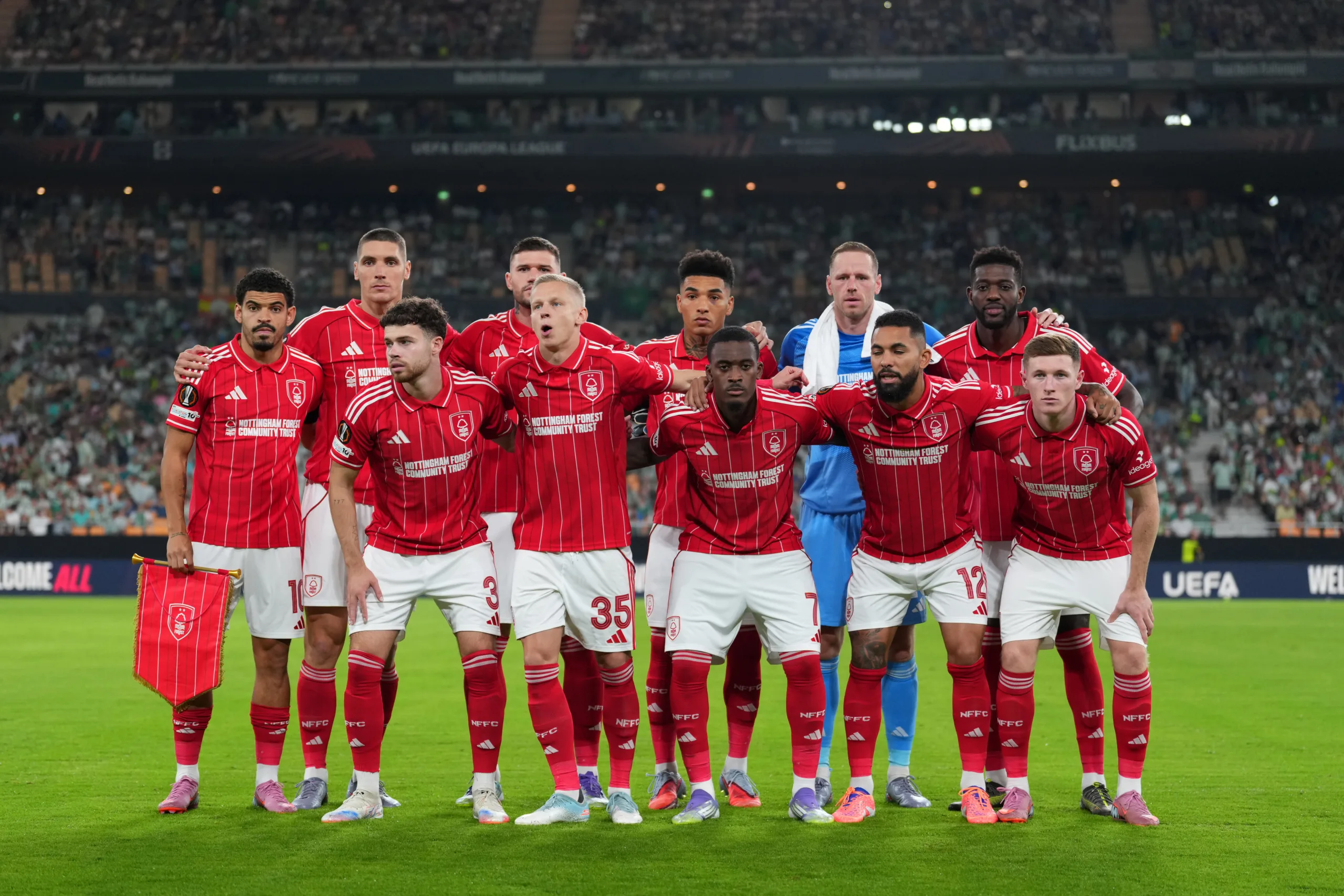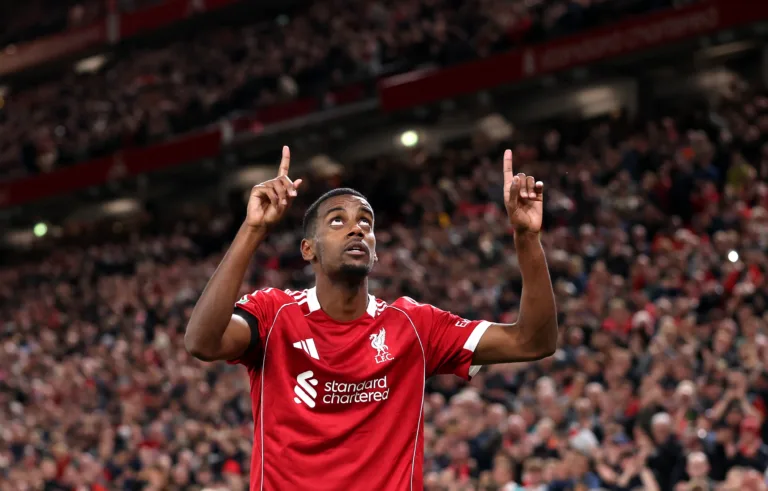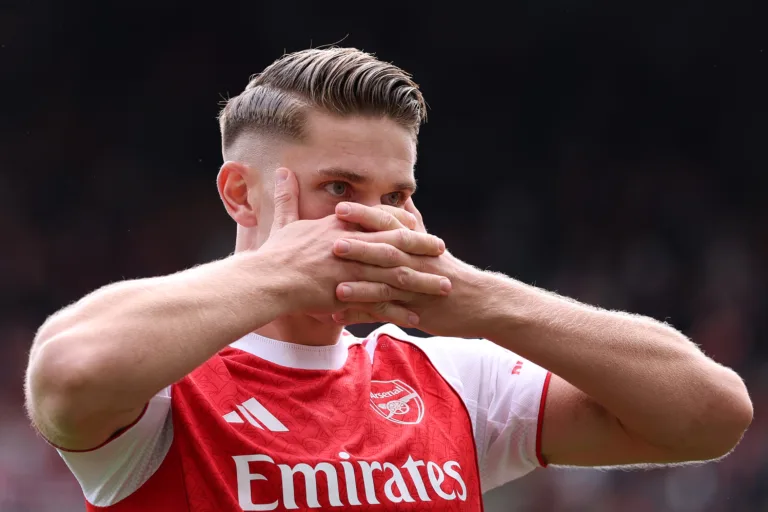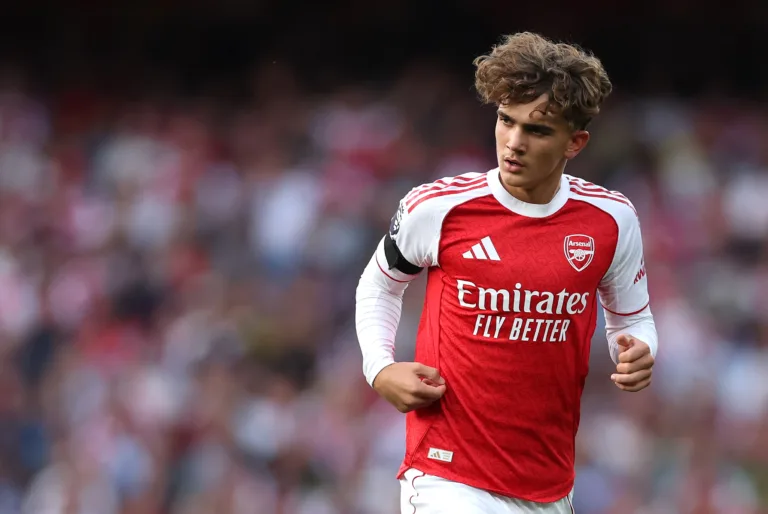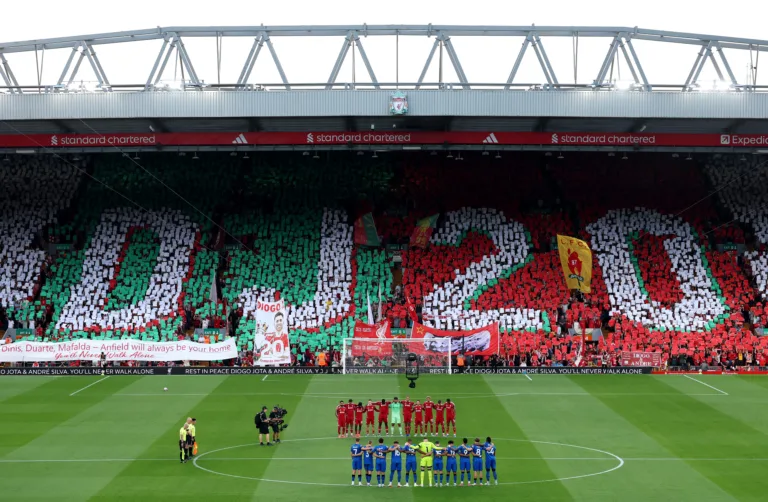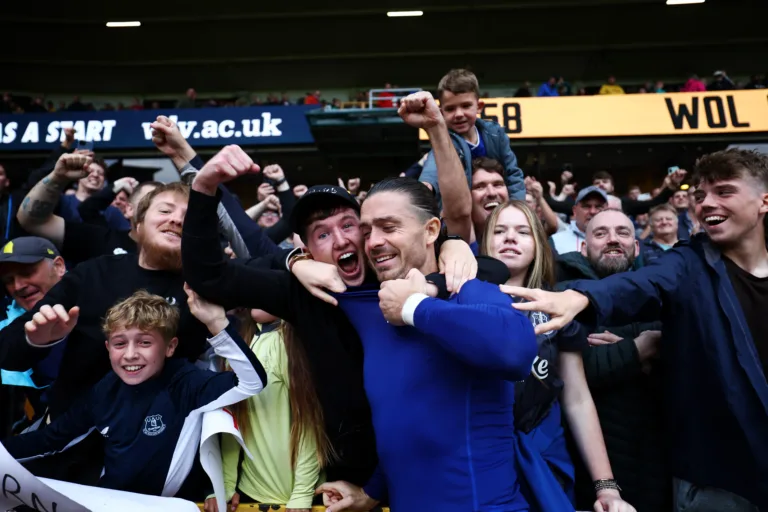Nottingham Forest’s European Revival: Thirty years on
Today marks the day Nottingham Forest finally step back onto the European stage. After thirty long years away, the club that once lifted back-to-back European Cups now finds itself in Seville preparing to face Real Betis in the UEFA Conference League. For the Forest faithful, this is not just another away day, it is a moment of history and a reminder of what was lost and what has finally been regained.
Their last taste of Europe came in 1996 when Frank Clark’s side fell to Bayern Munich in the UEFA Cup quarter-finals. Since then, Forest’s path has been anything but straightforward. Relegations, financial turmoil, constant changes in ownership and managers all tested the resilience of one of England’s most storied clubs. Yet under Ange Postecoglou in the 2025/26 season, the circle has closed and Nottingham Forest are back where they belong, ready to write a new chapter against Betis.
In this piece, we retrace Forest’s long journey back to Europe, exploring the highs, the lows and the sheer persistence that brought them from heartbreak in the 1990s to hope in Seville thirty years on.
The 1995/96 Uefa cup journey
Nottingham Forest began their journey in the UEFA Cup hack in 1995. Frank Clark was manager and Ian Woan was one of their star players. They began their journey in the UEFA Cup in September 1995 against Swedish giants Malmo. It was a two legged tie in the opening round where they lost the first leg 2-1 with Ian Woan getting the opening goal before Malmo got two goals from Persson and Anders Andersson. They went on to beat Malmo back at the City Ground 1-0 thanks to a Bryan Roy goal, which saw them go through to the next round on away goals.
The following round, they faced French side Auxerre in October 1995. They came away with a nwrrow win in France in the 1st leg thanks to the only goal from Steve Stone then saw the tie out with a goalless draw back at the City Ground in the 2nd leg.
Nottingham Forest then went on to face Olympique Lyonnais where Paul McGregor was the man to get the decisive goal of the tie in the first leg at the City Ground, which also saw Florent Laville sent off a minute prior to the goal.
The next UEFA Cup tie for Nottingham Forest didn’t come until March 1996 and it was the quarter final, that infamous tie against Bayern Munich. They travelled to Germany hoping to get a result to bring back to the City Ground and whilst they lost 2-1, with goals coming from Jurgen Klinsmann and Mehmet Scholl for Bayern then the only goal for Nottingham Forest from Steve Chettle, the fact they only lost by the single goal and had the away goal too, they definitely gave themselves a good chance to win the tie at the City Ground.
However, that 2nd leg turned from hope prior to kick off to destruction after the final whistle. Eventual UEFA Cup winners in 1995/96, Bayern Munich, went on to thrash Nottingham Forest at the City Ground 5-1 with the goals coming from: Christian Ziege, Thomas Strunz, Jurgen Klinsmann (x2) and Jean-Pierre Papin. Steve Stone got the only goal for Forest on the night but by that time, the tie was well and truly over with Forest well beaten by the German giants.
What Nottingham Forest fans may not have known at the time, it would be their last European appearance for a generation.
The Fall of Nottingham Forest – Premier League relegation in 1996/97
After their European journey came to an end at the back end of the 1995/96 campaign, they went on to finish 9th in the Premier League that season. Whilst there might have been some hope heading into the 1996/97 campaign that they could challenge for European football again, it was anything but promising.
In the summer of 1996, Nottingham Forest didn’t sign many key players that could have strengthened them. The only significant signings were Dean Saunders, Chris Allen and Brian O’Neil, with the latter arriving on loan from Celtic.
Frank Clark’s side didn’t begin the new Premier League campaign well at all, failing to win seven of their opening eight games with the only victory coming away from home against Coventry City, 3-0 on the opening day. That poor form continued into the following months and as a result, Frank Clark left the club in December 1996, although that wasn’t the only reason why he left the club.
With rival parties looking to buy the club at the time and with a boardroom crisis which saw Clark fail to get assurances over his future, he left the club as first team manager feeling that he had nothing left to do and that his depature would therefore help the club. Stuart Pearce stepped up as interim player-manager until the end of the season.
Nottingham Forest didn’t win their second game of the Premier League until the 21st December 1996, a 2-1 win over Arsenal at the City Ground which was also their first home win of the season. Even though Frank Clark left the club in December 1996, Nottingham Forest’s form in the Premier League never really picked up. Whilst three consecutive wins at the beginning of January gave Forest supporters a glimmer of hope about survival, that ultimately was the only real positive of their campaign as they went om to be relegated in May 1997.
The Dave Bassett years (1997-1999)
After relegation in May 1997, the mission was clear for Nottingham Forest; get back into the Premier League. In the summer of 1997 they appointed Dave Bassett as their new manager with the aim to secure promotion.
The summer business they done was fairly impressive with signings including the likes of Andy Johnson, Jon Olav Hjelde and Dave Beasant. The First Division campaign couldn’t have started any better for Nottingham Forest as they won their opening four league games. Despite a small bump in the road with no wins in the following three after picking up 12 points from 12, Forest then went on to win nine of the following sixteen matches, shich saw five draws and just two defeats. By Christmas, following victory over Stockport County, they looked in a strong position to claim promotion back to England’s top flight.
Nottingham Forest had more gears to go through in the 2nd half of the 1997/98 campaign and with less draws and even more wins, they marched their way to the First Division title to secure promotion back to the Premier League. The first season in charge of Nottingham Forest couldn’t have gone any better for Dave Bassett but he and Nottingham Forest supporters knew that the real challenge was stabilising back in the top flight.
In the summer of 1998, following their promotion back to the Premier League, Nottingham Forest signed the likes of Carlton Palmer, Jesper Mattsson and Dougie Freedman to help boost their squad to try survive. Despite these additions however, Forest struggled yet again in the Premier League. Whilst they won two of their opening three, they then went on a seventeen game winless run which landed them back in relegation trouble. As a result, Dave Bassett lost his job in January 1999.
Despite getting rid of the manager, Nottingham Forest went on to get relegated back to the second tier by finishing bottom. This was also their last Premier League campaign for twenty three years.
The struggles (1999-2017)
Following relegation back to the second tier in 1999, it saw Nottingham Forest go through twenty years of struggles. Whether it be boardroom crisis, managerial failings, terrible signings, financial struggles. They just kept on rotting, stalling and consistently failing year after year to get back to where they wanted to be, the top flight of English football and competing in Europe.
The 2000s
This decade was just the start of the struggles. Here are some of the things that happened between 2000-2009:
• Between 2000-2009, whether it be permanent or caretaker, Nottingham Forest had eight different managers. This includes the likes of Joe kinnear, Gary Megson and Mick Harford.
• Between the 1999/00-2003/04 seasons, Nottingham Forest only reached the First Division play offs once (6th in 2003/04).
• Nottingham Forest were relegated to the third tier in 2004/05, finishing 23rd with 44 points.
• Nottingham Forest spent three campaigns stuck in League One, finishing 7th and 4th before being automatically promoted at the third time of asking by finishing 2nd.
The 2010s – The Fawaz Al Hasawi years
It was an intriguing time for Nottingham Forest. Whilst they started the decade well, they continued to struggle and rot in the Championship.
• Between 2010-2012, Nottingham Forest reached the play offs twice and both occasions they failed to secure promotion.
• In July 2012, the Al-Hasawi family bought Nottingham Forest from the Nigel Doughty estate following the death of the former owner which saw the club in turmoil.
• Between 2012 and 2017, frequent managerial changes were made which includes Fawaz Al Hasawi sacking Sean O’Driscoll to appoint Alex McLeish after Christmas in 2012. The Scottish manager was promised a £3M transfer budget, one of many promises Al Hasawi failed to keep and after just 40 days in charge, McLeish left the club.
• Al Hasawi became more involved with the media, telling journalists from the BBC that the hope is to get Nottingham Forest back into the Champions League. He also claimed that Alex McCleish’s successor, Billy Davies, could become the Forest equivalent of Sir Alex Ferguson. Al Hasawi sacked Billy Davies in March 2014 after a breakdown in relationship and poor run of form.
• In 2014, it was reported Neil Warnock was offered the Nottingham Forest job but he turned it down due to Al Hasawi wanting to interfere with team selection. Hasawi later denied Warnock was ever offered the job and he also denied he interfered with football decisions.
• In the summer of 2014, Stuart Pearce was appointed first team manager. Al Hasawi was criticised for selling Jamal Lascelles and Karl Darlow behind the back of the manager.
• During the 2015/16 season, Nottingham Forest were placed under a transfer embargo by the EFL due to excessive losses. Late payments to staff also became common under Al Hasawi.
• During that same season with Dougie Freedman in charge as manager, he was restricted to free transfers due to the embargo. It was reported Al Hasawi would call Freedman at midnight to summon him to his London home, depriving the manager of sleep despite him needing to take training the following morning. Observers in the media were concerned about Freedman’s health and even adfer Al Hasawi sacked him, he still called Freedman to ask about transfers.
• During the same season, with Paul Williams in charge as caretaker following the sacking of Dougie Freedman in March 2016, Al Hasawi was accused of meddling with team selection.
• French coach Philippe Montanier was appointed as Nottingham Forest’s new manager in the summer of 2016 and despite him insisting that academy favourite Oliver Burke should not be sold, Al Hasawi sold him anyway. This angered supporters and saw multiple protests against his ownership and running of the club take place, with former player Stan Collymore also getting involved with the protests.
• In May 2017, Nottingham Forest were finally sold by Al Hasawi to Evangelos Marinakis.
The Marinakis years (2017-present)
After finally getting Fawaz Al Hasawi out of Nottingham Forest, the supporters finally had something to look forward to after years of disarray, decline and constant change where both leadership and direction were near enough impossible.
The first few years of the Marinakis era at Nottingham Forest weren’t particularly pretty, nor did it bring instant success. But there was a key difference between the way he wanted and is leading Nottingham Forest compared to how Fawaz Al Hasawi was running the club during his chaotic spell across five years which was full of broken promises.
Financially, Forest were a mess and Marinakis had to fix that. The debts Forest owed when he first came in were significant and he made sure he paid off all of the debt and loans. Forest were £40M in debt when he came in and as part of his acquisition of the club, he wrote that off for the ckub. He also made sure to pay back an £18M loan to a previous club director.
In his first summer as club owner, ahead of the 2017/18 campaign, Evangelos Marinakis bought players who had quality to build towards a possible promotion push. For the 2017/18 campaign, promotion obviously wasn’t the aim but it was an objective he had to get Forest back to the former glory days of Brian Clough across the 1980s as well as the European trips seen under Clough and later Frank Clark in the mid 1990s.
After narrowly escaping relegation the previous season, under Mark Warburton stability was the key in 2017/18 season. Forest signed the likes of Daryl Murphy from Newcastle, Kieran Dowell on loan from Everton, Liam Bridcutt from Leeds United as well as Barry McKay from Rangers and Tendsyi Barikwa from Burnley among others. Youth and experience, having the right balance, that was the key.
Whilst Mark Warburton didn’t last the whole season, after being dismissed in December 2017 and then later replaced permanently by Aitor Karanka, Nottingham Forest achieved a steady finish in the championship by finishing in 17th. That was an improvement on their 21st place finish the previous season.
The appointment of Aitor Karanka midway through the 2017/18 campaign signalled the intent that after a stable first season, Marinakis wanted to get the wheels in motion for a promotion push. In the summer of 2018, Nottingham Forest signed João Carvalho from Benfica, Lewis Grabbin from Bournemouth and Michael Dawson from Hull among others. This showed that they were not just building on the foundations set the year before, getting younger players in as well as experience, quality was also being added.
Just like Mark Warburton the previous season however, Aitor Karanka didn’t last after a poor run of form. He was replaced by Martin O’Neil on a temporary basis until the end of the season and Nottingham Forest finished the 2018/19 campaign in 9th, another season where table position was improved from the previous campaign.
Heading into the 2019/20 campaign, Sabri Lamoushi was appointed and yet again Marinakis put the money where his mouth is by investing in good players. In the summer of 2019, Nottingham Forest signed Carl Jekinson from Arsenal, Brice Samba from French club Caen, Albert Adomah from Aston Villa just among those who came in. This campaign was the closest Forest got to securing promotion back to rhe Premier League but it all came crumbling on the final day, during lockdown.
All Nottingham Forest had to do was beat Stoke City at home to get into the play offs whilst Swansea had to beat Reading with a three goal swing. Nottingham Forest went on to lose 4-1 to Stoke City then Swansea went on to defeat Reading 4-1 to snatch the final play off spot from the East Midlands side. Heartbreak, so close yet for Forest yet they were so far away from the promise land still.
Due to the Covid 19 pandemic and tight scheduling of fixtures, the turnaround from the end of 2019/20 season to the beginning of 2020/21 was unusually shorter than usual. In the summer of 2020, Marinakis once again invested in the squad with Forest signing the likes of Luke Freeman, Anthony Knockaert, Lyle Taylor, Harry Arter all arriving at the club and considering what happened at the end of the previous campaign, pressure was on Sabri Lamoushi to kick on and bounce back.
The opening games of the 2020/21 campaign for Nottingham Forest were disastrous. They lost their first four games and as a result, Sabri Lamoushi was sacked on the 6th October 2020. The same day, Chris Hughton was appointed as his successor. The former Brighton boss was able to steady the ship that campaign, guiding Forest to a 17th place finish. It was a set back but it was also the chance to reset and get going again the following season.
With Chris Hughton being a former promotion winner, to an extent promotion to the Premier League was an expectation.
During the summer, the loan market was utilised by Nottingham Forest which saw James Garner, Philip Zinckernagel and Djed Spence coming. Nottingham Forest had to start well this time around if there was any hope or realistic chance of promotion, but once again it didn’t happen and after being left in the relegation zone following the opening few games, Chris Hughton was sacked.
In came Steve Cooper and what he did was transform a team in such short time and turnaround between games from doubters to believers. They played an exciting style and brand or football that got the Forest fans off their seats, the City Ground became a fortress that it hadn’t been for many many years and they kept on winning games week after week. They somehow across the space of eight months went from doomed near the bottom to the play offs. Some would say it was the miracle of 2022, and it definitely was.
Nottingham Forest ended their long long long wait for top flight football by defeating Huddersfield Town in the promotion play off final. It wasn’t even seen as realistically possible at the start of the 2021/22 campaign yet Steve Cooper made the impossible possible.
The Premier League years
With Nottingham Forest losing those key players they had in their squad for promotion, whether it be ending of contract or returning to their parents club, they had a lot of work to do to make the squad Premier League ready. They signed a lot of players such as Jesse Lingard, Remo Freuler, Taiwo Awoniyi, Keylor Navas, Dean Henderson and many many many others throughout the 2022/23 campaign.
Steve Cooper knew that his side to begin with would be up against it and Forest had to become more pragmatic if they had any chance of staying up. Whilst there were low moments and struggles, they survived with a couple of games to spare by defeating Arsenal at the City Ground thanks to a Taiwo Awoniyi goal.
Nottingham Forest had to strengthen even further the following summer in 2023 to stabilise themselves in the Premier League with the likes of Chris Wood, Nicolas Dominguez, Ibrahim Sangare among others coming in. Due to their transfer activity being so chaotic however, it resulted in a four point deduction during the 2023/24 campaign which made the task of survival even trickier and following a heavy defeat at Craven Cottage, Evangelos Marinakis took the tricky decision to sack Steve Cooper. His replacement? Nuno Espirito Santo.
With the points deduction coming a couple of months after his appointment, Nuno and his side had all the work to do in order to survive. Luton were tbe closest challengers to survive and they were fighting well, picking up points and showing great resilience. Nuno Espirito Santo had to get that Nottingham Forest defence stable, consistent and working together as a unit. Despite the four point deduction, Forest just about survived by finishing 17th.
After the first two years of chaos, the summer business done in the summer of 2024 was far more calm, stable and well calculated. In came Callum Hudson-Odoi, Anthony Elanga, Elliot Anderson and those three in particular were very important for Nuno Espirito Santo in the transitions.
Building on from the defensive foundation, the pace of the two new wingers as well as the greater midfield strength with Elliot Anderson bolstering an ok Forest midfield which already had Gibbs-White, who joined in 2022, and Ryan Yates, who came through the academy, Nottingham Forest finally had a good squad capable of competing in the Premier League.
The wheels may have fallen off towards the end of last season, with Forest letting Champions League football slip away from them. But the previous eight months before that were just quite simply extraordinary and for the first time since the days of Frank Clark, Nottingham Forest were ready to pack their bags for a European tour.
Today, now, the present
Thirty years in the making, Nottingham Forest finally get themselves back into European football after a successful 2024/25 campaign. They added some fantastic quality over the summer with Dan Ndoye coming in to replace Anthony Elanga, who left for Newcastle, as well as Arnaud Kalimuendo, Dilane Bakwa, James McAtee and Omari Hutchinson the key additions. However, behind the scenes not everything was perfect.
During a press conference in August, Nuno Espirito Santo expressed a frustration with the club’s transfer business as well as the team’s preparations ahead of this season. He also went on to criticise his relationship with Club owner Evangelos Marinakis, stating that it was “not so close.”
Following these comments and after discussions behind the scenes during the international break, Nottingham Forest confirmed the departure of Nuno Espirito Santo. Ange Postecoglou was announced a matter of hours after as his successor.
Ever since promotion, Marinakis has shared a desire and passion to win trophies and following his Europa League triumph with Tottenham last season, he feels Ange Postecoglou is the man to deliver just that.
Now in the present, Nottingham Forest will end a near thirty year wait of European football when they travel to Seville to take on Real Betis with the aim to make a strong public bid they could be among the favourites to win the Europa League this season.
Regardless of the outcome, it will be a trip Forest supporters will forever because after generational suffering, they are back on the continental stage ready to shine.


